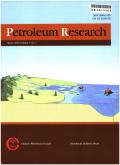Achieving low-carbon future through CO2 storage: A comprehensive review of global projects and policies
IF 4
Q1 Earth and Planetary Sciences
引用次数: 0
Abstract
Climate change mitigation efforts require innovative solutions to reduce GHG emissions. CCUS is a crucial technology for achieving a low-carbon economy. However, significant research gaps exist in understanding the intersection of CCUS policy and the United Nations' SDGs. This review article addresses these gaps by comprehensively analyzing CO2 storage projects across six global regions, examining 53 notable CCUS projects, and assessing CCUS policies in 15 leading countries. The primary objectives of this study are to (1) analyze regional trends, challenges, and technological advancements in CO2 storage projects across diverse geological formations; (2) investigate the integration of CCUS into national strategies across leading economies, including the US, Canada, Brazil, China, Japan, India, the UK, France, the Netherlands, Germany, Australia, KSA, the UAE, and Qatar. The integration of CCUS with renewable energy sources and BECCS is explored, emphasizing its potential to achieve harmful emissions and support net-zero ambitions. Future perspectives focus on advancing CCUS efficiency and economic viability through innovations in sorbents, membranes, and process optimizations. The findings demonstrate significant alignment between CCUS policies and SDG targets, emphasizing the importance of integrated approaches to achieve a low-carbon future. This review serves as a valuable resource for policymakers, researchers, and industry stakeholders involved in the development of CO2 storage solutions, providing insights into future perspectives and opportunities for CCUS.
通过二氧化碳封存实现低碳未来:对全球项目和政策的全面审查
减缓气候变化的努力需要创新的解决办法来减少温室气体排放。CCUS是实现低碳经济的关键技术。然而,在理解CCUS政策与联合国可持续发展目标的交集方面,存在重大的研究差距。本文综合分析了全球6个地区的二氧化碳封存项目,考察了53个著名的CCUS项目,并评估了15个主要国家的CCUS政策,从而解决了这些差距。本研究的主要目标是:(1)分析不同地质构造的二氧化碳封存项目的区域趋势、挑战和技术进步;(2)研究美国、加拿大、巴西、中国、日本、印度、英国、法国、荷兰、德国、澳大利亚、沙特阿拉伯、阿联酋和卡塔尔等主要经济体将CCUS纳入国家战略的情况。探讨了CCUS与可再生能源和BECCS的整合,强调了其实现有害排放和支持净零目标的潜力。未来的展望重点是通过吸附剂、膜和工艺优化的创新来提高CCUS的效率和经济可行性。研究结果表明,CCUS政策与可持续发展目标之间存在显著的一致性,强调了综合方法对实现低碳未来的重要性。本综述为参与二氧化碳封存解决方案开发的政策制定者、研究人员和行业利益相关者提供了宝贵的资源,为CCUS的未来前景和机遇提供了见解。
本文章由计算机程序翻译,如有差异,请以英文原文为准。
求助全文
约1分钟内获得全文
求助全文
来源期刊

Petroleum Research
Earth and Planetary Sciences-Geology
CiteScore
7.10
自引率
0.00%
发文量
90
审稿时长
35 weeks
 求助内容:
求助内容: 应助结果提醒方式:
应助结果提醒方式:


